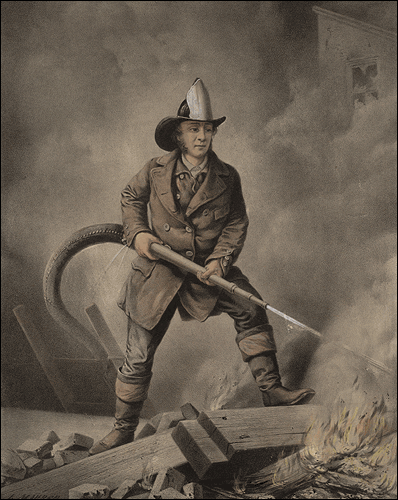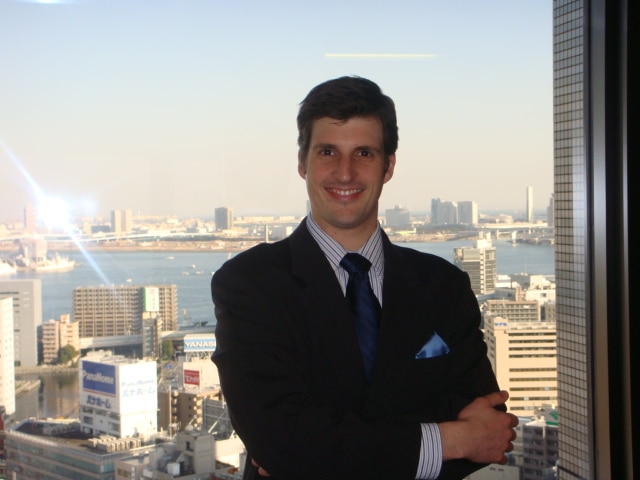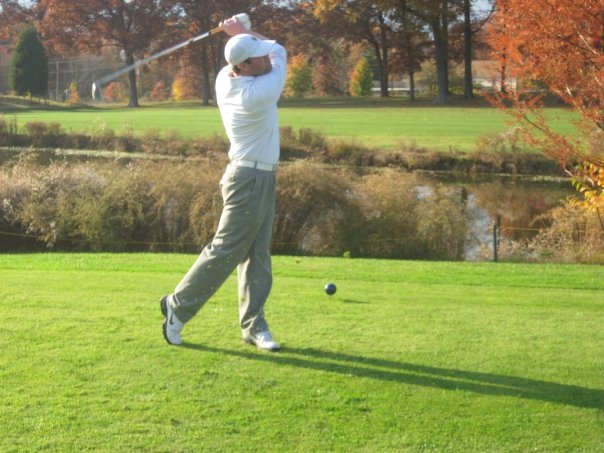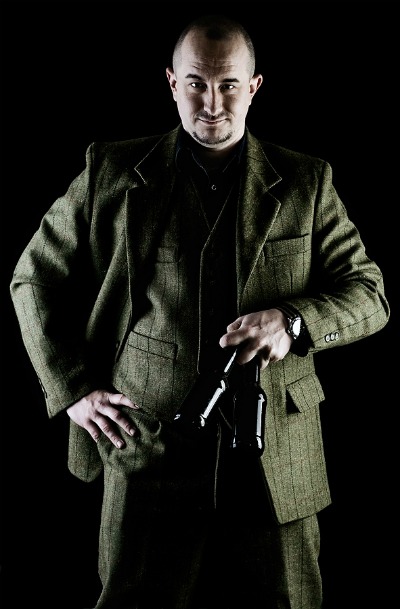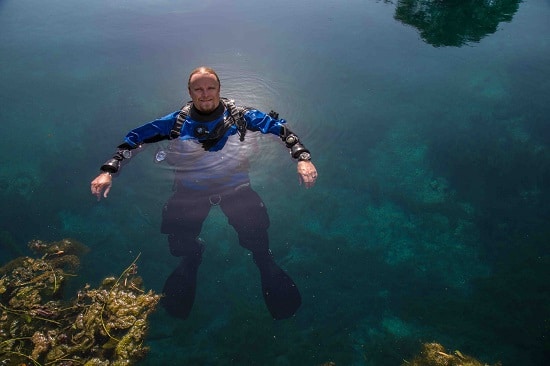
Once again we return to our So You Want My Job series, in which we interview men who are employed in desirable jobs and ask them about the reality of their work and for advice on how men can live their dream. Above photo credit: Texas Highways Magazine.
Underwater archaeology sounds like something you’d only find in adventure movies like Indiana Jones or in the books of Clive Cussler. Turns out, it’s a real-life career, and, I’m sorry to say, is just as enviable and FOMO-inducing as you might imagine.
Frederick “Fritz” Hanselmann discovered a book about underwater archaeology as a freshman in college. He read the book that night, became incredibly excited about the professional possibility he had just uncovered, and decided that this was the field he wanted to pursue. Frtiz’s work has taken him around the world in search of the shipwrecks of Captains Kidd and Morgan, and offered him the chance to quench his thirst for both adventure and historical knowledge. In our interview below, he imparts some wisdom to anyone who might want to follow in his wake.
1. Tell us a little about yourself (Where are you from? How old are you? Describe your job and how long you’ve been at it, etc.).
I was born in Ann Arbor, Michigan and grew up in Indiana. I used to think that I was born in the wrong place in that there wasn’t a beach — unless you count Lake Michigan. But I might not have been so driven to find an aquatic career had I grown up on the beach. That being said, we did spend time every year with my grandparents on the Gulf of Mexico in Florida.
I am 35 years old and have been working as an underwater archaeologist for almost 10 years.
2. Why did you want to become an underwater archaeologist? When did you know it was what you wanted to do and how did you find your way into this line of work?
I have always been fascinated with water and history. I grew up spending time each year beachcombing, snorkeling, and free diving in the Gulf of Mexico. My grandpa used to stick golf balls in old dress socks, drop them to the bottom, and have me swim down to retrieve them. I grew up watching reruns of Jacques Cousteau’s television shows and anything else that dealt with being under or on the water. I swam competitively and worked as a lifeguard for several years as well. I was also an avid reader and devoured all sorts of books on history, like the age of exploration, conquest and colonization of the “Americas,” the old west, etc. I was introduced to Clive Cussler’s books in high school and that helped fuel my imagination as well. I think I knew that I wanted to be an underwater archaeologist, but it took awhile to convince myself — and my dad — that it was feasible.
I took my first course in archaeology my freshman year of college and wrote my term paper on Bronze Age shipwrecks in the Mediterranean. I was also fascinated with Mesoamerica and Maya archaeology as well. I finally became certified to dive when I could afford to pay for it on my own. I chose Indiana University for graduate school because it was the only program that had ongoing field research in Latin America and it offered me an opportunity to be involved in not just shipwrecks, but also submerged prehistoric sites. The lingering doubt of being able to make a living led me to get a Master of Public Affairs with a focus on submerged cultural resource management. In addition to courses in scientific diving and underwater archaeology, I took courses in economics, management, cost-benefit analysis, and sustainable development among others. I felt like I needed a fallback in case it didn’t work. In the long run, those courses have been extremely helpful in managing budgets and working on the development of marine protected areas. So I dabble in other areas peripheral to archaeology as well.
Indiana University’s Office of Underwater Science hired me to teach courses and help run field projects and it was gangbusters from then on. I was able to work on projects such as the study of the Captain Kidd’s lost ship the Quedagh Merchant, search for shipwrecks Christopher Columbus lost on his third voyage, study Taíno sites submerged in caverns, and work to establish a system of marine protected areas in the Dominican Republic. I transitioned from IU to the Institute of Nautical Archaeology and then to The Meadows Center for Water and the Environment at Texas State University, where I am currently Research Faculty, Chief Underwater Archaeologist, and the Diving Program Director. Our offices are on the banks of Spring Lake, a spring-fed lake that is the headwaters of the San Marcos River. I also direct the center’s Underwater Archaeology and Exploration Initiative, which includes the Lost Ships of Henry Morgan Project, the Chagres River Maritime Landscape Study, the Monterrey Shipwreck Project, the Sunken Ships of Colombia Project, the Spring Lake Underwater Archaeology Project, and the McFaddin Beach Underwater Archaeology Project. I am also assisting colleagues in further developing archaeological efforts in some of the submerged cave systems in Mexico, which are some of the most stunning dives.
So I work on submerged late Pleistocene prehistoric sites to pirate/privateer and colonial Spanish shipwrecks from Texas to Colombia.
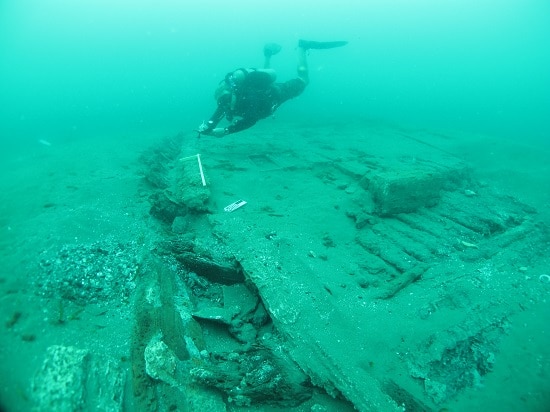
3. What’s the best way to prepare yourself to become an underwater archaeologist? What should you major in and what kinds of experiences and skills should you seek?
I think that you really need to have a passion for history or prehistory, as well as enjoy being outside and on and in various bodies of water. Obviously, being a certified diver is helpful, but being an efficient and effective diver even more so. Take all opportunities to hone diving skills, even if just in the pool. Along the same lines, get as much experience on archaeological projects as possible. This also includes post-processing of data and writing. The majority of our work deals with analysis of artifacts, historical research, and writing up the results of what we did in the field. It isn’t diving, boats, sun, and fun all of the time. I consider myself very lucky in that we have a dive site right outside of our building so when my eyes get blurry from staring at a computer screen for too long, I can escape and go diving practically right outside of my door.
One of my biggest recommendations to those that are considering this field is to find another skill outside of archaeology that is still applicable. The fact that I’m bilingual in Spanish really helped fast track my career, as well as the aforementioned background in project management and budgets. Being proficient with the use of magnetometers, side scan sonars, and other instruments of geophysical survey can be crucial and really jump one up to the top of a list of job candidates. Having a background in GIS (geographic information systems) is also very helpful. It is also helps to have fundamental diving skills locked down, that way no one has to worry about your learning curve on a project and involving you just becomes plug and play. Having proficient diving skills also creates a much safer work environment.
4. What kinds of employment opportunities are there for underwater archaeologists? Who are your employers — universities, private companies? Is it kind of a feast and famine situation, where sometimes you’re able to secure sponsorships for searches, and other times you’re waiting for a sponsorship to come in? What do you and others do when you’re between dives/explorations?
In all honesty, underwater archaeology is not a vast field and there are limited employment opportunities. That being said, the opportunities that do exist can be found in a variety of places such as government positions at both the state and federal levels, in universities, research institutes, and in the private sector. The cultural resource management (CRM) firms are where most of the positions are found. These companies provide services that allow for compliance with federal and state laws regarding historic preservation and archaeological resources, typically prior to major construction efforts and other things of that nature. The goal is to ensure that nothing historically significant is destroyed and to acquire all information possible if a site is to be disturbed.
5. What is the best part of your job?
It’s hard to pin down what is the best part of my job because there is so much I love about it. I love diving and being on the water. I love making new discoveries, be they underwater on a site or after the field during artifact analysis or archival research. I love the adventure that comes with all of it. For me, even the artifact analysis, which can oftentimes be a bit tedious, there is a constant sense of adventure and discovery. It’s when we get most of the real information like the date and origin of a shipwreck. I love interacting with history. Archaeology is a way to interact with our past and not just read about it; it makes history tangible.
Perhaps one of the aspects I enjoy most about my job is sharing the stoke with other people, especially students and those who are interested in the field. We aren’t finding cures to diseases or solving societal problems on a global scale. I got into this because it is fun and it allows us to learn more about our past and ourselves. Sharing that information is one of the most important and rewarding aspects of this job. If we aren’t all learning from what we do, there isn’t much of a point to doing it at all.
6. What is the worst part of your job?
My wife Lyndee says that I’m not just a glass-half-full kind of a guy, I’m a glass-overflowing-with-sparkling-water-guy, so it’s hard to pinpoint anything that is the worst. However, some aspects can be challenging. While I work at Texas State University, The Meadows Center is a self-funded research institute, so we are responsible for raising all of the funding that covers not only our research, but also our salaries, overhead, administrative staff, etc. So we are constantly in fundraising mode and working on grant proposals, donor requests, sponsorship funding, etc. Add that to the normal research, teaching, and service that we do and we all stay very busy! All of that aside, I can’t really say that there is a “worst” part.
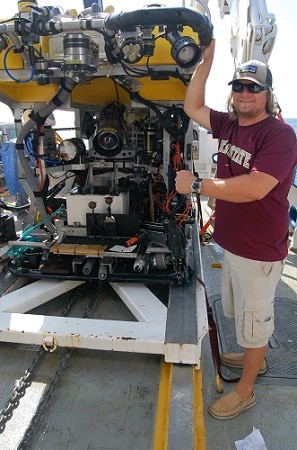
Credit: Alan Franks
7. What is the work/family/life balance like for you?
The balance between work/family/life is a juggling act just like any other position. Yet, when you love your job like I do, it sometimes feels like it isn’t work at all. I constantly enjoy being at work and doing my job. When reporting or publication deadlines loom, sometimes I don’t get to see my family as much as I would like. The same occurs when I’m in the field on a project and am thousands of miles from home. One of the funnest things I’ve been able to do in striving to maintain a balance is bring my family with me on several projects. Several years ago, I spent three months away from home on a project and we decided that the separation was too hard on all of us. We laid down a ground rule that if a project is longer than three weeks (a month if super important), my family has to accompany me and we’ve been able to stick to that by and large. It has been truly awesome to have my two sons grow up by my side in and on the water. My 10-year-old, Eagan, started diving shallow reefs with me when he was five and my 7-year-old, Anders, had lived in four countries before he turned one. He actually just made his first ocean dive in Panama last summer and I think he’s hooked. He didn’t want to come back up! Lyndee has been very supportive and even helps work on projects, from being on site to managing expenditures and logistics. It’s become a family affair. Of course, she wants the boys to be surgeons and what not…but when asked, they always say they want to be divers! Aside from spending valuable time outside, the boys also learn more about other people, cultures, and other parts of the world, which will be extremely advantageous for them in the future whether they follow in my footsteps or not.
8. What is the biggest misconception people have about your job?
The biggest misconception about underwater archaeology is that it is the same as treasure hunting or salvage. I can’t tell you how many times I’m asked how many coins or artifacts I have or if I’ll be able to retire when I find a Spanish treasure galleon. Archaeologists don’t believe in a monetary value being placed on heritage or the sale of artifacts. We believe that to be unethical. Archaeology is the scientifically based, systematic study of humans in the past through investigating the physical remains, such as shipwrecks or stone tool production sites. One will never get rich as an archaeologist, but I can assure you that it is a lot of fun and has been worth every moment. A good friend of mine and I have said that if we were to ever be rich, not much would change. We would still be doing underwater archaeology and running expeditions, we would just have more money to do it and do it on our own terms!
9. Any other advice, tips, commentary or anecdotes you’d like to share?
I guess I can impart some professional and personal advice.
As I mentioned earlier, I would suggest to anyone interested in underwater archaeology — or just archaeology in general — to find and learn a non-archaeological skillset that can be applied to archaeology, something that will set you apart from the average archaeologist or archaeology student. In my case, being bilingual in Spanish has been one of the major factors in my career and in managing projects in Latin America. Having taken courses in economics and finance has allowed me to never come home from the field with a project budget in the red. Skills such as the ability to conduct geophysical survey using magnetometer and sidescan sonar and process the data is something that will really set someone apart in the field and go a long way towards finding employment. GIS is also a tool that is very important that not enough of us are familiar with.
As far as personal advice goes, I would posit that one should never be afraid to say “I don’t know.” I think a lot of times, we as scientists, archaeologists, or any kind of “-ologist” are too quick to hypothesize and theorize when the fact of the matter is that we don’t have an exact answer. Whenever I find myself saying or thinking, “I don’t know…”, it makes me want to find the answer and provides more drive to do so.
Years ago, a very good friend and colleague once gave me some wonderful advice that I try to pass on to my sons, my students, and others: never take yourself too seriously. The moment you take yourself too seriously, pride clouds your judgment, you cannot be objective, and you become an a**hole. We can work hard and do our best, but at the end of the day what really matters is how we treat and work with each other. This will ensure that projects are successful and that professional relationships become friendships that last, something that I am very privileged to say has happened on most of the projects I’ve been involved with. This notion also transcends careers, professions, politics, cultures, etc. Being a good person is key to being successful in life, not just underwater archaeology.
Most of all, have fun! Life can be challenging, but we can find fun in the challenge itself.
Tags: So You Want My Job



